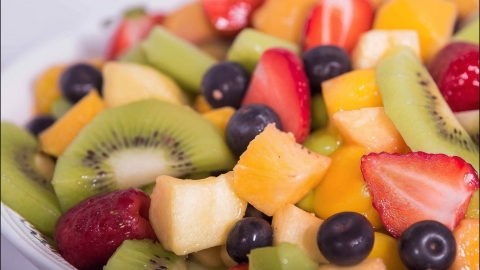What fruits are suitable for people with cholecystitis?
In general, patients with cholecystitis can safely consume fruits such as apples, bananas, grapes, oranges, and pears. The detailed analysis is as follows:
1. Apples
Apples are rich in pectin, a component that promotes intestinal motility, aids digestion, reduces fat accumulation in the body, and helps avoid increasing the metabolic burden on the gallbladder. Additionally, apples have a mild texture that does not stimulate gallbladder contraction. Eating them in moderation—whether during stable or remission phases—can supplement the body with essential vitamins without easily causing discomfort.

2. Bananas
Bananas are high in potassium and dietary fiber. Potassium helps maintain the body's electrolyte balance, while dietary fiber promotes intestinal movement and prevents constipation. Increased abdominal pressure from constipation may indirectly irritate the gallbladder. Bananas have a soft, creamy texture and are easy to digest, placing minimal strain on the gallbladder, making them suitable for daily consumption by cholecystitis patients.
3. Grapes
Grapes contain various vitamins and natural fructose, providing energy to the body. They are very low in fat and do not stimulate excessive bile secretion from the gallbladder. The antioxidants in grapes can also help reduce systemic inflammation, offering supportive benefits for recovery in cholecystitis patients. Therefore, grapes are a suitable everyday fruit choice.
4. Oranges
Oranges are rich in vitamin C, which enhances immune resistance and lowers the risk of infection. The organic acids in oranges promote the secretion of digestive juices, aiding food digestion and preventing indigestion-related increases in gallbladder workload. With their soft pulp and high digestibility, oranges do not irritate the gallbladder and are appropriate for patients with cholecystitis.
5. Pears
Pears have high water content, helping to hydrate the body, support metabolism, and facilitate the elimination of waste. Their dietary fiber improves intestinal function and prevents constipation, thereby avoiding elevated abdominal pressure that could affect the gallbladder. Pears are mild in nature and pleasantly sweet, without stimulating gallbladder contraction, making them suitable for moderate consumption at various stages of the disease.
In addition, cholecystitis patients may also moderately consume berry-type fruits such as strawberries and blueberries. It is important in daily life to avoid eating large amounts of fruit at once, especially overly sour or sweet varieties, to prevent gastrointestinal discomfort that might indirectly affect the gallbladder. When consuming fruit, fresh and ripe options are recommended, and chilled or refrigerated fruits should be avoided to prevent gastrointestinal irritation.








